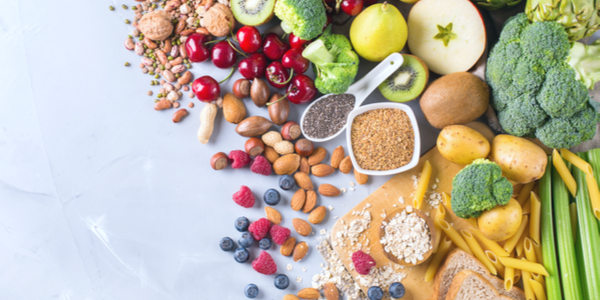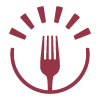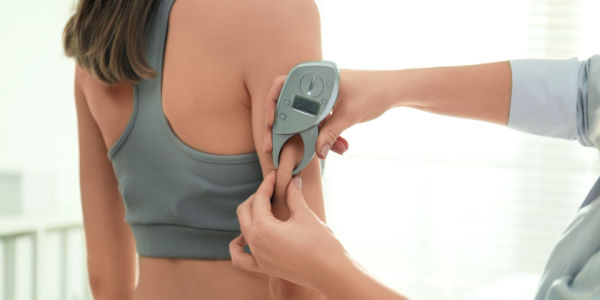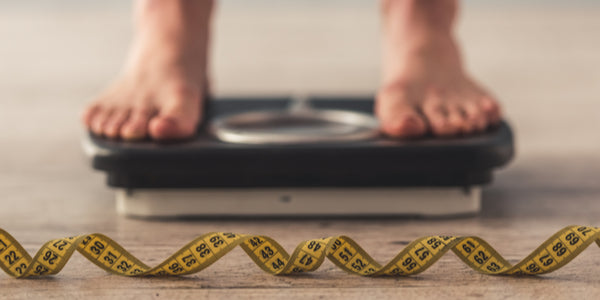
According to the CDC, almost half of American adults either have high blood pressure or are taking blood pressure medication. High blood pressure, defined as >130mm Hg / 80 mm Hg, increases the risk for heart disease and stroke. Therefore, lowering high blood pressure is an important consideration for maintaining heart health.
Taking medication can help lower blood pressure. However, the good news is there are also ways to lower blood pressure naturally through lifestyle!
Wondering how to lower blood pressure without pills? Read on for ways to reduce blood pressure naturally from simple lifestyle changes.
7 Ways to Reduce High Blood Pressure Naturally
Lowering blood pressure can lead to less strain on the heart and blood vessels ultimately lowering the risk for cardiovascular disease and stroke. The following ways can help lower blood pressure even without medical intervention.
1. Limit Sodium
Although salt is not as "bad" as previously thought, its reduction has shown to run parallel with reduced blood pressure readings. Reducing prepackaged, processed foods while increasing fresh produce naturally lessens salt intake.
Also, skip the drive-thru lines and salt shaker and prepare meals at home more often. Use herbs and spices to add flavor without sodium when cooking at home.
The American Heart Association (AHA) recommends limiting sodium to ideally 1,500 (milligrams) mg and no more than 2,300 mg per day for people with high blood pressure.
2. Follow the DASH Diet
The DASH diet is an eating plan designed by the National Heart, Lung, and Blood Institute specifically for lowering blood pressure. Following the DASH diet - which is low in sodium and high in fruits, vegetables, and other foods that lower blood pressure - may lower blood pressure in just a few weeks according to Family Doctor.
If not strictly following the DASH diet, aim to eat more wholesome foods and limit those rich in added sugar, salt, and refined oils. Overall, focus on eating a balanced, healthy diet filled with high-fiber foods, lean proteins, and healthy fat sources.
3. Exercise
The impact of exercise on chronic disease risk is incredibly strong. Exercise can not only help prevent and treat high blood pressure, but it can also lower the risk for stroke, certain cancers, depression, and more.
How much exercise you need depends on individual health concerns. In general, the AHA recommends the equivalent of at least 150 minutes (two hours and 30 minutes) per week of moderate-intensity physical activity.
Exercise for lower blood pressure does not have to be complicated. It can be as simple as starting a walking exercise plan. In fact, walking 40 minutes a day has been shown to lower blood pressure in people with high blood pressure.
4. Stress Management
Everyone has stress - sometimes daily stressors are avoidable and sometimes not. Coping with stress is an important way to mitigate the negative effect stress can have on health. This can be taking time to do relaxing and/or enjoyable things, shifting perspective, and realizing what you cannot control.
The following are stress management tips that can help lower blood pressure:
• Listen to music: According to American Heart Association News, research suggests listening to music can help lower blood pressure by lowering anxiety and may even make blood pressure medication work more effectively. The rhythm of music can positively impact breathing rate which in turn can impact heart rate. Research suggests listening to music for at least 3 months may lower blood pressure by nearly 6 mm Hg.
• Laugh more: Like music, laughter can have a similar positive effect on blood pressure. How can you get more laughter throughout the day? Listening or watching stand-up comedians, watching funny movies, or even doing laughter yoga.
• Move your body: Exercise, as mentioned, can positively affect blood pressure and overall heart health. However, it is also a way to simply reduce stress. Any type of movement can have beneficial effects on the body and mind so find activities you enjoy - from walking to dancing to gardening - to help balance daily stressors.
• Deep breathing: Taking deep breaths is one of the oldest and most tried methods of lowering stress. Incorporating intentional deep breathing during or after stressful situations can help lower stress and ultimately help lower blood pressure. Mindful breathing can also be done with yoga or similar exercises.
5. Weight Loss
Losing extra weight can naturally help lower blood pressure without medication. How much blood pressure can lower depends on the amount of weight to lose.
According to the Mayo Clinic, blood pressure can lower by about 1 millimeter of mercury (mm Hg) with each kilogram (about 2.2 pounds) of weight you lose.
For more guidance about how much weight to lose, speak with your healthcare provider and check these weight loss tips.
6. Limit Alcohol and Caffeine
Surprisingly, the consumption of alcohol has actually been shown to reduce heart disease risk and help lower blood pressure. But, only if consumed in moderation...
(And this is not a suggestion to start drinking but rather alcohol can fit into a balanced diet.)
Alcohol consumed more than the moderate dose can have the opposite effect and increase blood pressure. Moderate alcohol intake is considered one drink a day for women and two a day for men. One drink equals:
• 12 ounces of beer
• 5 ounces of wine
• 1.5 ounces of 80-proof liquor
• 1 oz. of 100-proof liquor
Caffeine may raise blood pressure in some, especially in people who do not consume it often. If you suspect caffeine may be a factor in elevated blood pressure, cut back on caffeine intake.
7. Adequate Sleep
Similar to deep breathing, sleeping naturally lowers blood pressure. If there is not adequate sleep, blood pressure remains elevated longer throughout the 24-hour cycle.
According to the CDC, adults who sleep less than 7 hours of sleep at night may be more likely to have high blood pressure and a higher risk of heart disease. Getting adequate sleep, for most people 7 hours or more, can help naturally contribute to lowering high blood pressure.
Recapping How to Lower Blood Pressure Naturally
If you do not know blood pressure levels, monitor blood pressure levels at home or talk to your healthcare provider. Monitoring blood pressure is important for knowing where the numbers lie and if the levels are going up or down over time.
While there are lifestyle steps to take to lower blood pressure naturally, sometimes medication or other medical interventions are needed. Keep in mind lowering blood pressure can take time and be a combination of effects. Incorporating all these lifestyle changes will have a greater effect than doing just one shift in lifestyle for lowering blood pressure.
References:
10 drug-free ways to control high blood pressure. Mayo Clinic. Published February 24, 2021. https://www.mayoclinic.org/diseases-conditions/high-blood-pressure/in-depth/high-blood-pressure/art-20046974.
Calming us down or revving us up, music can be good for the heart. Published March 3, 2021.https://www.heart.org/en/news/2021/03/03/calming-us-down-or-revving-us-up-music-can-be-good-for-the-heart.
Hendrick B. Music and laughter may help lower blood pressure. WebMD. Published March 25, 2011. https://www.webmd.com/hypertension-high-blood-pressure/news/20110325/music-and-laughter-may-help-lower-blood-pressure.






